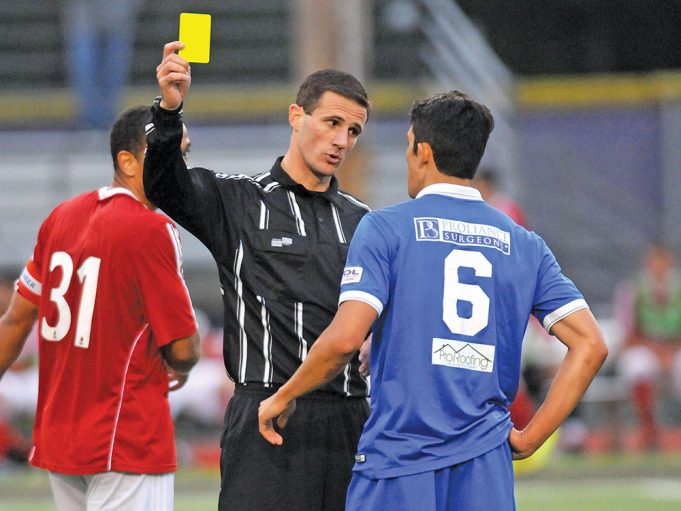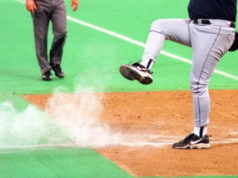When an official asks, ”What should I do if a fight breaks out?” I’m forever tempted to answer, “Dude, don’t let it happen again.” Most of the time, tact wins out and I ask a question: “Have you ever seen a deer on the road transfixed by your car’s headlights?”
For some good answers on what wildlife has to do with officiating, I turn to a published interview with wildlife biologist David Yancy. “Deer activity peaks within an hour or so on either side of sunrise and sunset,” he told The New York Times, “so their vision is optimized for very low light.” Eyes dilated diminish a deer’s vision dramatically. As a result, the deer “don’t know what to do, so they do nothing,” according to the expert.
When it comes to dealing with fighting, we may dress like zebras, but at times, we referees are like deer in headlights when a fight is about to start. In too many cases “we don’t know what to do, so we do nothing.”
But there are tools that can be used to defuse a given situation.
Concentration and reaction time enable officials to short-circuit fighting when necessary. When a fight may be about to start, move quickly and react decisively to redirect the negative energy. A few seconds can make all the difference.
Enforce the rules from beginning to end, utilizing the guidelines below:
- Insist on sound crew mechanics. Your pregame needs to include a plan so at least one member of the officiating crew observes all players and both benches at all times.
- Recognize trouble spots. Those include after a score, a foul, an injury and all “dead ball” periods.
- Be firm. Do not ever warn an athlete who clearly taunts or baits an opponent. While the wording varies among various playing rules codes, “taunting and baiting” means any attempt to embarrass, ridicule or demean an opponent. It is a foul. Call it every time.
The issue is not about a fight breaking out, but instead, what should you do if you sense ill will brewing? Enforce the rules. Call the foul. Don’t turn your back. If a fight happens despite your best efforts, disqualify the offenders without hesitation and enforce the appropriate penalties.
When officials control a situation by proactive mechanics, injuries are reduced. That is how the best officials minimize the chance of injury and thus the chance of lawsuits.
Points to remember:
- Keep an eye and ear attuned to tempo and flow of the game. Sometimes players don’t want to play but instead commit unnecessary infractions and disrespect opponents.
- Don’t rationalize. For decades, officials have been supplied with a myriad number of reasons not to manage fight situations: “Never touch a player … for liability reasons.” “Don’t attempt to separate players.” Officials stand motionless as a fight situation develops.
- Distract and delay. If, despite your best efforts, a quick escalation of tensions leads to physical contact, use whistle, voice and movement to distract combatants. Separate the opponents while calming tempers. Taking immediate action to keep opponents apart will usually prevent the fight from escalating or drawing more participants. These actions can prevent injuries that can cause lawsuits.
What's Your Call? Leave a Comment:
Note: This article is archival in nature. Rules, interpretations, mechanics, philosophies and other information may or may not be correct for the current year.
This article is the copyright of ©Referee Enterprises, Inc., and may not be republished in whole or in part online, in print or in any capacity without expressed written permission from Referee. The article is made available for educational use by individuals.


















